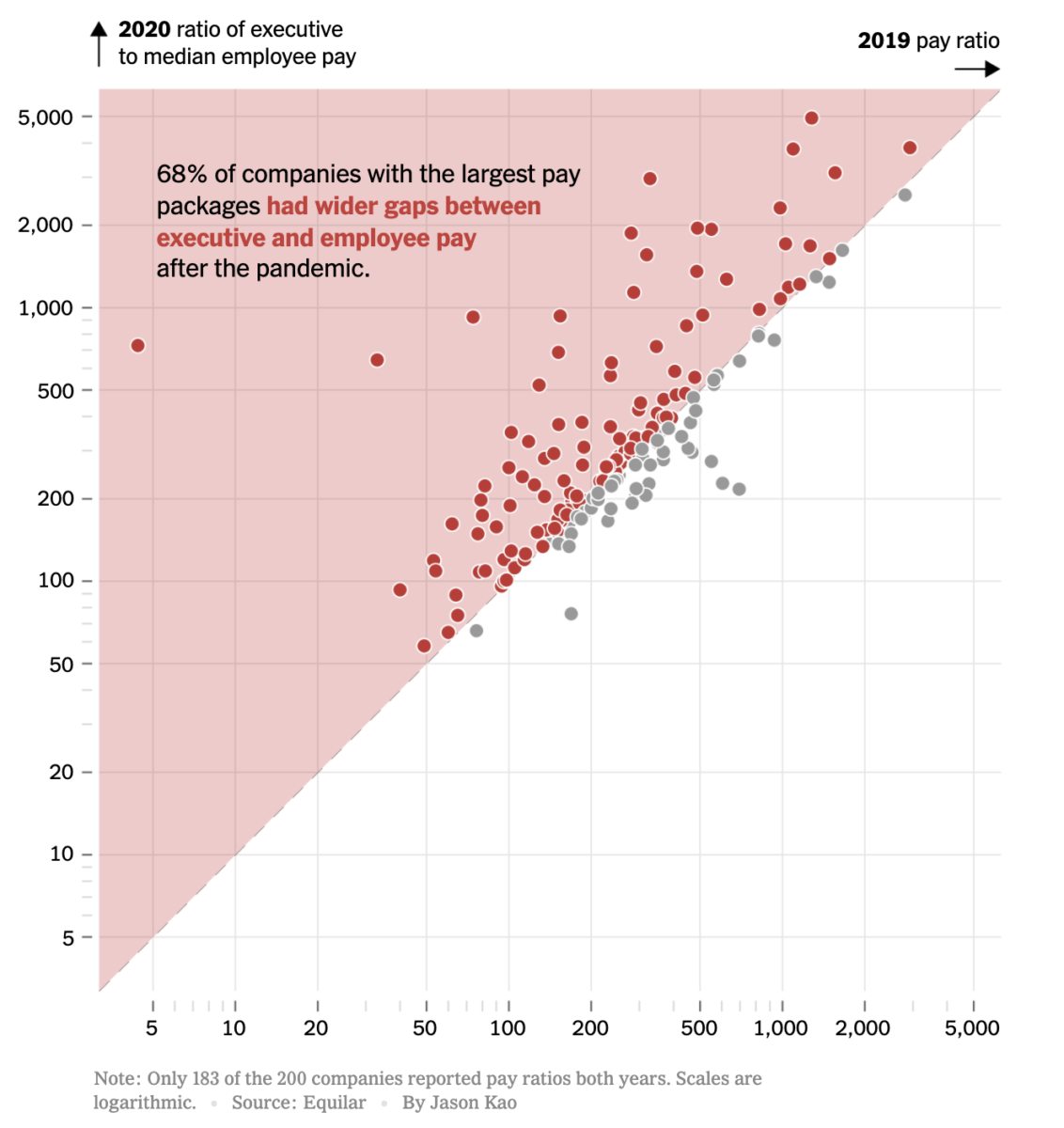My Two-for-Tuesday morning train WFH reads:
• Can astrology make sense of cryptocurrency? Maren Altman and a million TikTok followers think so. Anything with a verifiable birthday or creation date has a birth chart that can be read and, according to astrologers, gleaned for predictive information. That means there’s astrology for relationships, pets, political movements and, yes, bitcoin. Skeptics are not on board, of course, and cynics might see it as a perfect match: two things that feel like foreign languages to most people. Finding an edge in the crypto market is already a fuzzy art. Is attempting to use celestial bodies so far off? (Washington Post)
• Renting Is Cheaper Than Buying, Almost Everywhere The choice, however, is almost always about money, and in today’s hot seller’s market, a lack of available homes and skyrocketing prices have stymied many aspiring buyers. The flip side has been falling rents, especially in cities, where landlords struggle to fill record numbers of vacant apartments by offering rent cuts and concessions. Although rents show signs of recovering, it’s still a good time to sign a lease. (New York Times) see also Many Americans moved to less pricey housing markets in 2020 Many Americans who moved last year relocated to areas where homes were, on average, bigger and less expensive. On average, people who moved to a different city in 2020 ended up in a ZIP code where average home values were nearly $27,000 lower than in their previous ZIP code (AP)
• California Defies Doom With No. 1 U.S. Economy California just keeps being the opposite of whatever doomed is. The Golden State has no peers when it comes to expanding GDP, raising household income, investing in innovation and a host of other key metrics. (Bloomberg)
• Winners and Losers of the Work-From-Home Revolution High-income workers at highly profitable companies will benefit greatly. Downtown landlords won’t. (The Atlantic) see also The Back to the Office Maximum In the United States, organizations where employees have been largely working from home for the past 16 months are having a mild freak-out. Depending on the organization, they’re hemming and hawing. They’re treading water. They’re having seemingly endless meetings with HR. They’re analyzing focus group data and surveys, and drafting carefully worded “back to the office” plans. And they’re dealing with or anticipating or totally ignoring employee blowback. (Culture Study)
• Companies Push Employees to Prove They Are Vaccinated for Covid-19 Goldman Sachs, Morgan Stanley are among employers requesting staffers to disclose vaccination status as more offices reopen (Wall Street Journal)
• Chipotle says it raised prices to cover hourly wage hike, doesn’t mention execs’ huge COVID-19 bonuses Chipotle executive pay soared in 2020 even as profits in the pandemic year stagnated, at $356 million on revenue of $5.9 billion, compared with $350 million on revenue of $5.6 billion the year before. (Los Angeles Times) see also Inflation Is Here: Fast Food Bosses Make $5,460 An Hour Chipotle’s CEO Brian Niccol is in a class of his own — and his paycheck shows it. Niccol pulled down more than $38 million in total reported compensation in 2020. That’s more than double what he made the prior year. It’s also $18,286 an hour, if you assume 40-hour weeks for 52 weeks. (Investor’s Business Daily)
• The Most Important Thing to Know About Inflation Right Now For the past two months, the cost of living has been rising quickly. In May, the Consumer Price Index jumped 0.6 percent, faster than economists anticipated. It was the second largest monthly increase in more than a decade, just behind April’s 0.8 percent spike. (Slate)
• The Green Revolution Is Being Built on a Very Dirty Industry: The battle against climate change is relying on the same polluting building block that drove the second Industrial Revolution a century and a half ago: Steel (Bloomberg) see also The Lithium Gold Rush: Inside the Race to Power Electric Vehicles A race is on to produce lithium in the United States, but competing projects are taking very different approaches to extracting the vital raw material. Some might not be very green. (New York Times)
• The quest to solve the mysterious ‘eerie’ hum of the Golden Gate Bridge The strange whine has quickly become a legendary piece of San Francisco’s auditory landscape. Amateur sleuths have roamed the city’s hilly streets tracking the sound’s source and an electronic music producer claimed to have mixed it into a soundtrack of existential dread. (The Guardian)
• Why It’s So Hard To Gauge Support For QAnon Just how many Americans believe in the QAnon conspiracy? Recent polling from June shows it’s around 15%. But a poll from last October found it was 7%. Even that is high compared to a rolling survey that pegged it at 4% earlier this month. Why the disparity? Maybe, in an attempt to minimize the power of QAnon, a secretive clique of polling elites signed a contract with Satan and Marina Abramović to offer wildly different survey results … or maybe it’s just difficult to poll about QAnon. (FiveThirtyEight)
Be sure to check out our Masters in Business interview this weekend with Brad Stone, BusinessWeek Technology editor, and author of the new book, Amazon Unbound: Jeff Bezos and the Invention of a Global Empire.
Meager Rewards for Workers, Exceptionally Rich Pay for C.E.O.s

Source: New York Times

